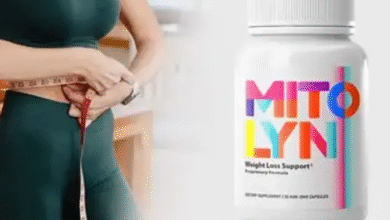Best Nutrition Tips for Managing Ascites Symptoms
Ascites, a condition characterized by the accumulation of fluid in the abdomen, is often a symptom of serious liver diseases such as cirrhosis, heart failure, kidney issues, or cancers. While medical treatments are essential, dietary and lifestyle modifications play a crucial role in managing symptoms and improving quality of life.
At Expert Ayurveda, we believe in a holistic healing approach where balanced nutrition complements Ascites Ayurvedic Treatment in India.
Let’s explore the best nutrition tips that can support your journey to better health.
Understanding the Role of Diet in Ascites Management
Ascites leads to abdominal discomfort, bloating, swelling, and shortness of breath due to fluid retention. The key goals of nutritional management are:
-
Reducing fluid retention
-
Preventing malnutrition
-
Supporting liver function
-
Enhancing the body’s natural detox process
Ayurveda emphasizes nourishing the digestive fire (Agni), balancing doshas (especially Kapha and Pitta), and eliminating toxins (Ama). A supportive diet helps detoxify the body and prevents further fluid accumulation.
Best Nutrition Tips for Managing Ascites Symptoms
Limit Sodium Intake Strictly
Sodium causes water retention, which can worsen fluid buildup in the abdomen.
Tips:
-
Aim for less than 1500 mg of sodium per day.
-
Avoid table salt, processed foods, canned goods, pickles, and salty snacks.
-
Use natural herbs like cumin, coriander, and turmeric for flavor instead of salt.
In Ayurveda, excess salt aggravates Kapha and Pitta doshas, increasing fluid retention and inflammation. Switching to rock salt (Saindhav Lavan) in very limited amounts can be more beneficial under expert guidance.
Follow a Fluid-Restricted Diet (If Prescribed)
In severe cases of ascites, especially when hyponatremia (low sodium in the blood) is present, fluid intake may need to be restricted.
General Guidance:
-
Consult your physician for the exact fluid limit (usually 1–1.5 liters/day).
-
Include buttermilk, herbal teas, and coconut water within this limit if permitted.
Ayurvedic tip: Warm, spiced water with ajwain (carom seeds) or fennel can improve digestion and reduce bloating.
Choose Easily Digestible Foods
A weakened digestive system is common in ascites patients. Heavy, fried, or overly spicy foods may overwhelm the liver and digestion.
Prefer:
-
Light khichdi (rice + mung dal)
-
Steamed vegetables (bitter gourd, bottle gourd, ridge gourd)
-
Moong dal soups
-
Boiled papaya and apple
Avoid red meats, cheese, rich gravies, fermented foods, and oily snacks.
From an Ayurvedic perspective, such a diet calms aggravated doshas and restores Agni.
Increase Protein Intake Mindfully
Protein deficiency is common in ascites, particularly liver-related ascites. However, excessive protein intake can be harmful in some liver conditions.
Good sources of protein:
-
Moong dal
-
Tofu
-
Boiled eggs (in moderation)
-
Paneer (if digestion allows)
-
Low-fat dairy
Avoid: Red meat, processed meat, and full-fat dairy as they may burden the liver.
Note: Always consult your healthcare provider or Ayurvedic practitioner before adjusting protein levels.
Incorporate Liver-Supportive Herbs and Foods
Ayurveda offers potent natural remedies to support liver function and reduce inflammation.
Foods & Herbs to Include:
-
Amla (Indian gooseberry): Rich in vitamin C, helps detoxify the liver.
-
Turmeric: Powerful anti-inflammatory; add a pinch in warm water or curries.
-
Guduchi (Giloy): Supports immunity and liver health.
-
Punarnava: Traditionally used in Ascites Ayurvedic Treatment in India for its diuretic and anti-inflammatory properties.
You may take these in the form of decoctions, churnas (powders), or tablets under expert supervision.
Avoid Alcohol and Caffeine
Alcohol is the major cause of liver cirrhosis and ascites. Caffeine can irritate the liver and increase dehydration.
Avoid completely:
-
Alcoholic beverages
-
Sugary sodas and energy drinks
-
Excessive coffee or strong black tea
Opt for herbal teas such as ginger, licorice, or fennel infusions which soothe the digestive tract and reduce Kapha accumulation.
Eat Small, Frequent Meals
Large meals can increase pressure on the abdomen and worsen discomfort.
Follow:
-
5–6 small meals per day
-
Chew thoroughly and eat slowly
-
Avoid eating late at night
This practice aligns with Ayurvedic principles of honoring digestive rhythms and avoiding Ama (toxins) formation.
Support Digestive Health with Ayurvedic Practices
Simple lifestyle practices can enhance nutrient absorption and reduce bloating:
-
Drink warm water throughout the day.
-
Practice Vajrasana (a simple yoga posture) after meals.
-
Use digestive churnas like Hingvastak or Trikatu after meals (consult an Ayurvedic expert first).
-
Follow a regular eating and sleeping schedule.
Conclusion
Managing ascites effectively requires a combination of medical care, Ayurvedic wisdom, and disciplined nutrition. A supportive diet not only helps reduce symptoms but also improves energy levels, immunity, and overall well-being.
At Expert Ayurveda, our approach to Ascites Ayurvedic Treatment in India includes customized diet plans, herbal remedies, Panchakarma therapies, and lifestyle guidance. We focus on treating the root cause, balancing doshas, and reviving natural bodily functions.
If you or a loved one is struggling with ascites, don’t wait. Reach out to Expert Ayurveda for a personalized consultation and start your journey towards holistic healing today.




